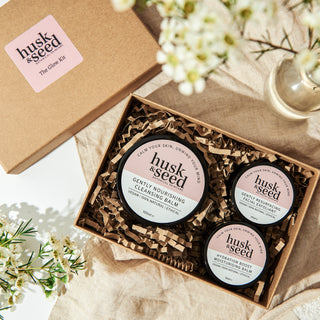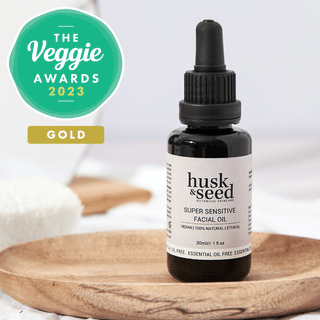Decoding Your Skin: A Guide to Colour and Texture Analysis
Ever feel like you're playing a guessing game with your skin? It's time to take the mystery out of your skincare routine! Understanding your skin's unique needs is the first step towards achieving a healthy, radiant complexion.
This blog will guide you through a simple colour and texture analysis, empowering you to make informed decisions about your skincare.
Beyond Skin Types: Understanding Your Skin's Signals
While it's helpful to have a general idea of your skin type (dry, oily, combination), remember that your skin is dynamic and ever-changing. What you might perceive as your "skin type" could be a reaction to your environment, products, or lifestyle.
For example, if your skin feels tight and dry after cleansing, it doesn't necessarily mean you have naturally dry skin. It could be that your cleanser is too harsh and stripping away essential moisture.
Pay close attention to how your skin responds to different factors. This awareness will help you choose the right products and routines to truly nurture your skin's health.
Decoding the Messages in Your Skin.
Texture
The texture of your skin is a good indication of its health. If it feels rough to touch, there is a build-up of the stratum corneum, the upper most layer of our skin comprising of dead skin cells, meaning that this skin needs to be sloughed away with a gentle exfoliator. Either your natural shedding process isn’t happening effectively enough, or your skin needs more stimulation to promote blood supply and more effective cell turnover.
If you can feel underlying bumps, it could be a sign of blocked pores, prompting a closer look at your skincare products. In some cases, hard bumps can also be related to rosacea.
Colour
The colour of our skin can reflect how well the circulation is working within the skin. If there is a lot of redness, then the skin is very sensitive. If the redness is permanent then this could be a sign of rosacea, particularly if its accompanied by broken capillaries around the nose and cheeks.
Dull, pale skin indicates that the skin’s respiration might not be as effective as it could be and waste isn’t being removed properly. If it’s particularly dull, then it can indicate a sluggish lymphatic system. Again, facial massage can correct this through lymphatic drainage, which will stimulate the skin and return a healthy glow!
Pigmented areas show the formation of melanin granules in the skin, so if you have permanent brown patches on the skin you may want to consider wearing an SPF all year round to protect your skin from further UV light damage. Lots of the plant oils in our formulations also help to minimise pigmentation marks.
Lifestyle
Remember, your skin reflects your overall health. Some other factors to consider when analysing your skin’s health are your lifestyle:
Are you getting good quality sleep?
Are you taking medications that could be adversely affecting your skin?
What is your home/work environment like? Is it dusty? Is there natural daylight? Do you spend lots of time outdoors?
This can all affect your skin.
Hormones
Hormones, especially oestrogen, play a key role in skin health throughout life. Oestrogen promotes cell turnover, contributing to smoother, clearer skin. However, during menopause, oestrogen levels decline, leading to noticeable changes that are worth noting.
Sensitivity & rashes – some women experience more sensitive skin during menopause, which can result in itchiness on the skin’s surface, sometimes accompanied by a rash. One of the reasons for this is the reduced sebum levels due to the reduction in oestrogen. Sebum keeps our skin supple and moisturised so when it reduces our skin can become dry, and itchy which can turn to a rash over time.
Sun protection & pigmentation – we are more at risk from sun damage during menopause because oestrogen controls how much melanin we produce. As our levels of melanin go down, we have less protection against UV rays. This also means that we can start to show signs of pigmentation on skin that has previously been exposed to the sun.
Need More Guidance?
We have an abundance of information on our website about skin health! Explore the journals for more in-depth articles on skincare, including facial massage techniques or take our skin quiz for personalised product recommendations!



